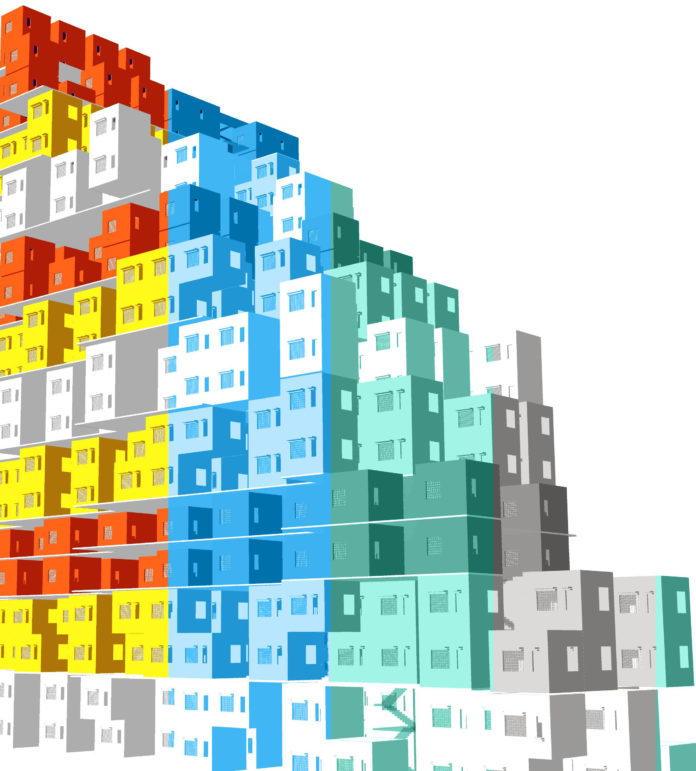Unexpectedly, while conducting a ‘Coffee Hour with the Mayor’ at Moakley Park on May 22, Mayor Marty Walsh announced that the City intended to let the temporary IPOD that has been in place for two years in South Boston expire in July without extension. Quiet gasps were heard among the attendees. Some because they knew what that meant, others because they did not know what it meant.
In 2017, the new owner of 202 M Street proposed an 8-unit development on the lot that had always been a cozy and attractive single-family home with ample yard and off-street parking. The neighbors went ballistic, so to speak. And in response to what many residents at the time believed was a greed-based interpretation of the Article 68 new amendments to the Boston Zoning code allowing for an FAR of 2 in South Boston, at the urging of City Councilor Michael Flaherty, the Mayor imposed a temporary IPOD that was to give the City time to re-engage the community and further amend the new zoning to address as many loopholes as possible, given the latitude that resulted in an egregious interpretation of the code, notwithstanding its legality.
The rezoning process undertaken over a two-year period was supposed to result in less and less need for public attendance at contentious hearings. At the time, the Mayor stated, “We launched the South Boston Rezoning Initiative as a result of the South Boston community’s desire to ensure that future development fits within the fabric of the neighborhood.”
When the Mayor instituted the Article 27S IPOD and its first extension in February 2018, he stated, “The extension of the IPOD will give us another tool to measure if the zoning is working the way it is intended to.” Mark McGonagle, then representing the BPDA and who facilitated neighborhood zoning dialogue, added, “The zoning changes made to the code were guided by the average building dimensions in Southie, which, through the community process, we determined to be appropriate scale for future housing. However, we have heard from the neighborhood that this scale may not be appropriate in all cases. The extension of the IPOD is an effective way to continue to examine these issues as they arise.”
The Boston Planning and Development Agency (BPDA) defines the Interim Planning Overlay District as ‘short-term zoning codes adopted by the City for a specific geographic area, which is undergoing a longer-term planning or rezoning process. An IPOD ensures that development projects seeking approval in the near term will meet the goals of the longer-term planning or rezoning process, rather than continuing current, likely outmoded, development patterns.
An Overlay District is a type of land use zoning district that “lies” on top of the existing zoning and potentially covers many underlying districts. The use of Overlay Districts provides communities with an opportunity to meet the unique needs of geographic areas that may either require higher levels of protection – or – may not be reaching their fullest development potential.
Overlay Districts are specified by statute and can be established with either optional or mandatory requirements upon the underlying land. Generally, once an Overlay District is established, the requirements of that district supersede provisions in the underlying zoning where standards and procedures are different.
There is precedent for extending the IPOD beyond what might be considered a reasonable period of time. ARTICLE 27P, the South Boston Waterfront IPOD, was extended from when it was instituted in 1999 for 15 years through to 2014. So what’s another year or two during which the City can propose the necessary amendments to avoid the exploitation of the loopholes and strengthen the purpose of Article 68 – “To ensure that future development in South Boston fits within the fabric of the neighborhood”.
The following are statements from City, State and Congressional Elected Officials
- “We’ve been overwhelmed in South Boston with numerous proposals to demolish and rebuild single family and two family homes, converting those structures to massive box-like buildings that are totally incompatible with the neighborhood and make parking more difficult. Simply put, these massive developments encroach on our quality of life. I am very concerned about the current trend and I hope the new zoning accommodates my neighbors’ concerns.” – Congressman Stephen Lynch
- “I proposed implementing the Interim Planning Overlay District (IPOD), Article 27-S, as a temporary measure to provide an additional layer of community oversight into any projects looking to build, extend or perform renovations over 1,000 sq feet in light of the rapid development occurring throughout the neighborhood. Over the past two years, with Mayor Walsh’s support, the IPOD prevented the bulldozing of one, two and three family homes on over-sized lots. That being said, no zoning is perfect, and Article 68 has some existing deficiencies that need to be addressed in light of the IPOD expiring on July 17, 2019. I suggest adding a minimum lot size per dwelling unit and where appropriate, increase the per unit parking requirements. I am committed to working with the stakeholders to make sure that the neighborhood is protected. I encourage all constituents to reach out to my office and express their questions, concerns and ideas about how we can make Article 68 better for the neighborhood.” – Councilor At Large Michael Flaherty
- “As a candidate two years ago, I joined Councilor Michael Flaherty in calling for the South Boston (IPOD) to bring community process and transparency to projects that neighbors may have issues with but would not have otherwise been caught by Article 68 zoning. The IPOD is not perfect and it does trigger this public process for smaller, less controversial interior projects. It has also provided an opportunity for neighbors to weigh in on some proposals that abutters, civic groups, and elected officials all found to add too many bedrooms and provide negative impacts to parking and quality of life. Some have also described it as a deterrent for developers to take on controversial projects in our community due to the public process it entails. I have serious concerns about lifting the IPOD at this time and view it as a small price to pay to ensure that residents have a voice in what happens in their neighborhood. I look forward to receiving more feedback from my constituents and our civic associations about the IPOD and other zoning suggestions at a hearing in the coming weeks.” – District Councilor Ed Flynn
- “The South Boston IPOD has slowed the displacement and overdevelopment that was happening in the neighborhood and should not be lifted unless the zoning code will be amended to address the underlying issues. Residents need to have a chance to give meaningful feedback on what these zoning changes should be. I am working with Councilors Flynn and Flaherty to confirm a date shortly for a public hearing on the IPOD, and I stand with the neighborhood in pushing for residents to have a voice in planning the community around them.” – At Large Councilor Michelle Wu
- “The IPOD demonstrates the importance of establishing a strong community process for development in the South Boston neighborhood,” said Councilor Essaibi-George. “As a former Civic Association President, our office has prioritized attending neighborhood meetings and we have a strong record of attending Zoning Board Meetings to advocate on behalf of abutters impacted by development. I share the community’s interests about preserving the architectural character of the neighborhoods and will continue to represent their interests before the developers and Zoning Board, with or without, an IPOD in place, to make sure that South Boston residents are fully protected in the community process for future development in the area.” At Large Councilor Annissa Essaibi George
- “As a Boston City Councilor At-Large, I stand with the South Boston community in supporting, stopping or slowing down the lifting of the South Boston Interim Planning Overlay District (IPOD) in order to have more community input. Since I was sworn onto the Boston City Council this past January, in addition to trying to fix the broken MBTA and working for real affordable housing for residents, one of the major issues I have been working on is fighting the over-development of Boston, which is a major problem throughout the city. Simply put, the Article 68 Zoning does not fit all of South Boston, and I support the extension of the IPOD.” – Councilor At-Large Althea Garrison












